How will the world cope with an unabashedly black Beyonce?
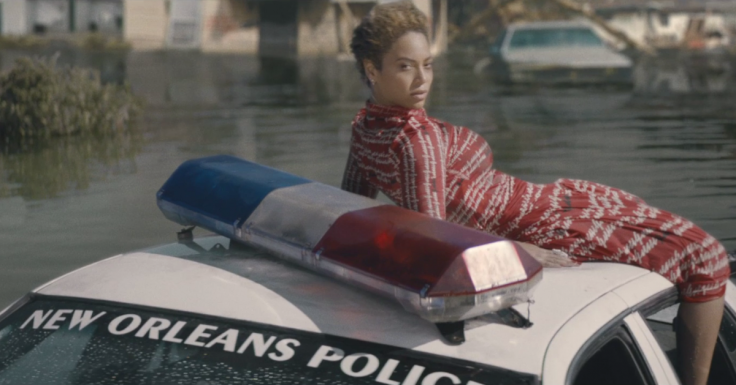
It's simple: if the world could have a white Beyoncé, it would.
In the same way the music industry continues its attempts to fashion the world's biggest black artists out of white musicians - Rita Ora from Rihanna, Justin Timberlake from Usher, Iggy Azalea from Nicki Minaj - if they could build-a-Beyoncé from a blonde-haired, blue-eyed soul singing twenty-something, Becky-oncé would be climbing the charts as we speak.
But thankfully, for those so irked by the idea of a black woman dominating popular culture, Beyoncé's blackness is something that until recently, has not taken centre stage. With fair skin, slim features and an array of catchy, catch-em-all tunes, she has by part gotten to where she is by being, or at least being perceived as, an apolitical 'every-woman' – a very tanned blonde if you will, that beauty brands even appear to 'whitewash'.
The bigger she's gotten, the more universal she has become - girls and guys of every colour and creed can relate to her songs that journey from the first grind at the club to the first date, to the inevitable break up and well, back to the club again.
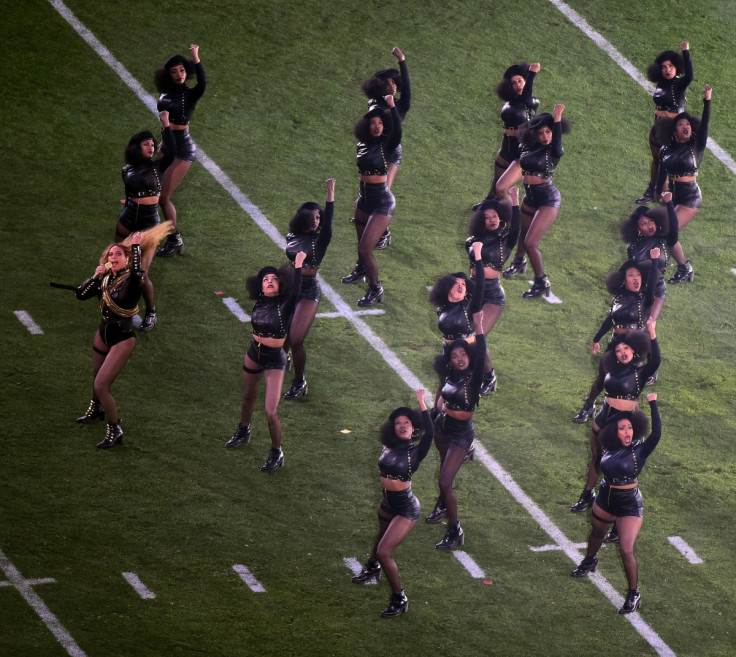
She's been the author of the colourblind, common-woman soundtrack to our universal heartbreaks, date nights and nights out.
Everyone knows Beyoncé is black, but she doesn't make a song and dance about it.
Except, of course, she has quite literally, having now released a song and music video that potentially alienates at least half of a fan base she's spent the best part of a decade winning over.
The recently released 'Formation' is no 'Run the World' girl-power anthem - it's a brazen, black girl call-to-arms. At her Super Bowl performance on 6 February, her dancers were all dressed as black militia.
And most importantly, while its themes of police brutality, beauty standards and black history could have easily found a home on a slow, sombre album track, she's chosen to get political on a bona fide 'I'm back, bitches' banger, bound to dominate your next night out.
An ode to black power will be in the top 10 – and everyone simply has to deal with it.
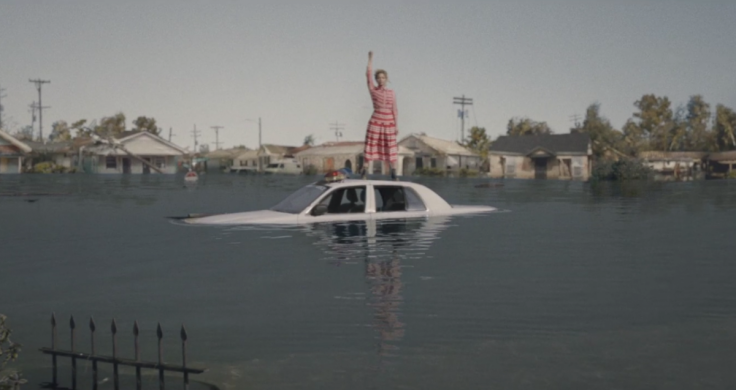
It's empowering and alien in equal amounts to watch black women centred so pointedly and powerfully. The entire cast of her video is black, bar the police - a script flip forcing white people to, as black people have done for years, see themselves confined to the sidelines of someone else's story: the faceless, one-dimensional bit part we're so used to occupying.
And while it primarily pays homage to African-American women in the South of America, black women around the world will rejoice at the images of hair shops that could have been in Croydon or Crenshaw, and churches that wouldn't be out of place in Lagos or Louisiana.
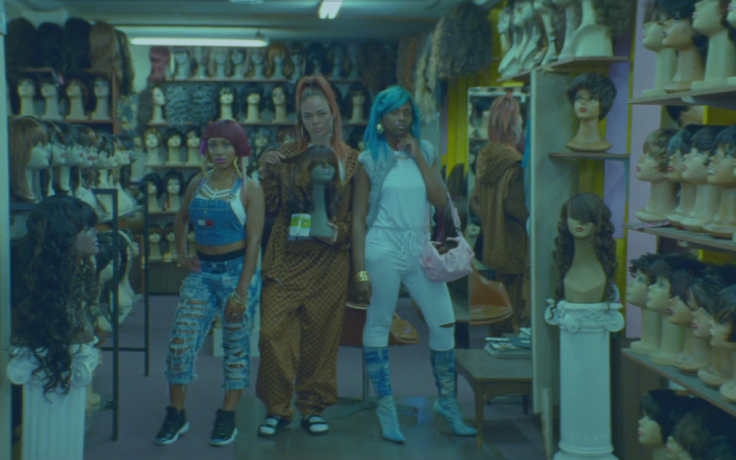
The entire thing almost comes off as a Trojan horse of epic proportions: a master plot conducted at a biannual black girl meeting.
'Play it safe, Bey - lay low for the first few years. Just keep smiling'.
'And then – bang – take to the biggest possible platform, performing the most pro black song imaginable, complete with gyrating Black Panthers.'
It's the biggest, blackest proverbial head nod of all time.
The world's all-singing, all-dancing black best friend has finally reached her limit and appears sick of centering white people in her own story. It's like Dionne has gone rogue and started throwing about black power fists, as a perplexed Cher Horowitz looks on in startled amazement at the sudden realisation her life doesn't revolve around her.
Her video and lyrics come off as a massive exhale, like she'd been holding it all in for decades. And now she's finally in a position where she can say and do whatever the hell she wants, there's literally nothing anyone can do about it.
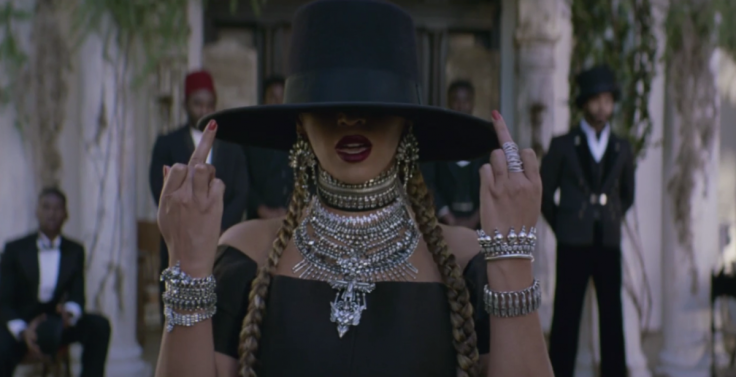
How will an audience who have taken to her primarily because of her adherence to respectable politics deal with a badass braided-up Beyoncé? A Beyoncé who chooses the word 'negro', over the other 'n' word with its increasingly flippant use? A Beyoncé who is quite happy to watch members of her fanbase squirm as she softly serenades them with uncomfortable truths?
How will the world cope with an unabashedly black Beyoncé?
Whilst she's not the first to hop off the fence regarding black issues (a spate of rappers made political tracks and statements last year), due to her perceived disconnect from politics and the black struggle, as well as her widespread appeal, she's perhaps the most important.
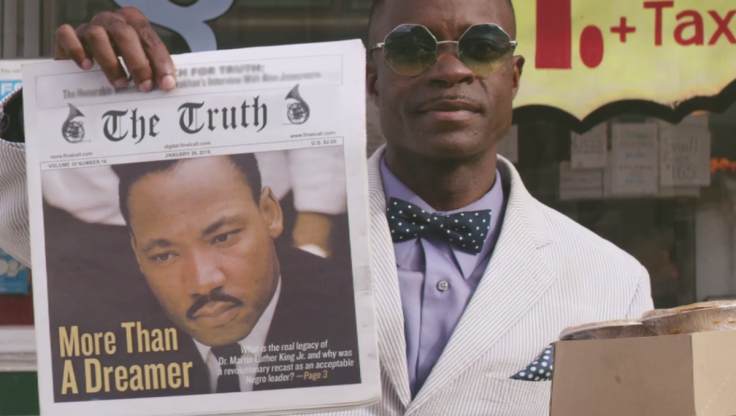
Already seen as superwoman, Beyoncé has exhibited the ultimate power: making swathes of white people around the world face up to the black experience. It has been ripped from the margins and laid out in the most mainstream of ways. After her 2014 self-entitled album, Beyoncé has proven herself the master of surprise, but nobody saw this coming.
Though perhaps we should have. She's always been a proud black woman from the South. The 'hot sauce in my bag' lyric illicits the same wink-wink-nudge-nudging amongst black women as 'Get Me Bodied's' infamous 'pat your weaves' line did.
In Formation, she gets specific. Beyoncé praises the features – wide noses, afro hair – she has been lauded for not having. This is by a black woman, for black women.
In 2013, Beyoncé and Jay Z attended a rally in support of 17-year-old high school junior Trayvon Martin, who was shot dead by a police officer. "#actnow4Travyon" she had tweeted a few days before and attached a link asking fans to sign a petition to join the protest.
She was thoroughly lambasted for it.
So after the backlash, after the calls for her to comb her daughter's hair, after the jibes about her husband's 'negro' nose, she brings out Formation.
The answer to 'how will the world cope with an unabashedly black Beyoncé' is that she does not care. Because she knows as well as we all do, that regardless of this, she's going to slay.
OK?
Yomi Adegoke is a journalist. She writes about feminism, race and the intersection between the two.
Read more: We don't want to have to boycott the Oscars, we just want to be acknowledged
© Copyright IBTimes 2024. All rights reserved.






